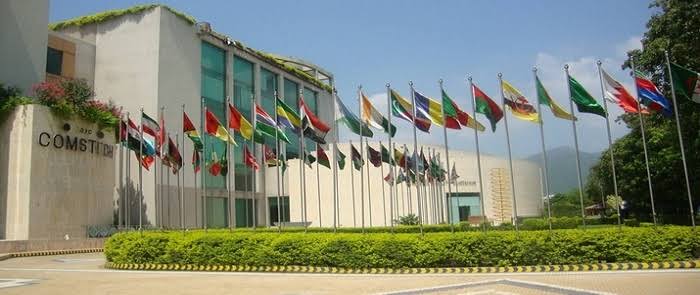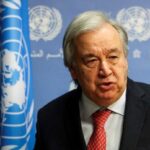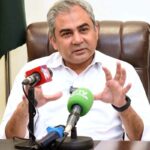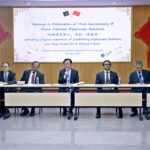ISLAMABAD, Apr 30 (APP): The participants of an event titled “Pakistan’s Roadmap for Plastic Action” held here Tuesday emphasized the critical need to combat plastic pollution for the well-being of both humanity and the environment.
The event was organized by the Commission on Science and Technology for Sustainable Development in the South (COMSATS) and the Ministry of Climate Change and Environmental Coordination (MoCC&EC), to mark Earth Day 2024.
The event, held at the COMSATS Secretariat at Islamabad, featured the introduction of the Pakistan National Plastic Action Partnership (NPAP), a government initiative implemented as part of the Global Plastic Action Partnership (GPAP) under the auspices of the World Economic Forum.
Coordinator to the Prime Minister of Pakistan on Climate Change and Environmental Conservation (CC&EC), Ms. Romina Khurshid Alam graced the occasion as the chief guest.
Ambassadors, High Commissioners, and Diplomats from COMSATS member states and other countries in Islamabad also attended the event. Ms. Romina emphasized Pakistan’s pressing issue with plastic pollution, especially in urban areas. Owing to these daunting challenges, Pakistan has taken proactive steps, such as banning single-use plastics and polythene bags in 2019, to mitigate plastic waste generation.
She stressed the importance of global cooperation in combating plastic pollution, citing initiatives like the Global Plastic Action Partnership (GPAP) led by the World Economic Forum and UNEP.
She highlighted the government commitment to climate change adaptation and mitigation through policies like the National Adaptation Plan and initiatives such as the Living Indus Initiative, Recharge Pakistan, and GLOF-II, which aim to enhance climate resilience and protect vulnerable sectors of the economy and ecosystems.
In his opening remarks, the Executive Director, COMSATS headquarters, Ambassador Dr. Nafees Zakaria underscored the necessity of a cohesive global strategy to address the issue of plastic waste, emphasizing the importance of not solely focusing on its sources.
Dr. Zakaria highlighted that while enacting legislation and policy measures are commendable steps, the true challenge lies in their execution amidst resistance from pressure and interest groups.
He pointed out that our planet is not only grappling with plastic-related pollution but also facing a myriad of other man-made hazards contributing to climate change and environmental degradation.
Of particular concern is the often-overlooked impact of military activities and motivated imposed wars, which have yet to be addressed in international conventions and protocols. Dr. Zakaria stressed the urgent need for initiatives and innovations, supported by scientific solutions, from advocates for our planet Earth.
Addressing the occasion, Azerbaijan’s Ambassador to Pakistan, Mr. Khazar Farhadov expressed hope that hosting COP29 in Azerbaijan will inject new momentum into climate action and international collaboration, furthering the objectives of the UNFCCC and the Paris Agreement.
He underscored the importance of collective action among various stakeholders, including countries, international organizations, financial institutions, and the private sector, to deliver meaningful outcomes at COP29.
Ambassador Farhadov highlighted that, under the directive of President Ilham Aliyev, Azerbaijan has designated 2024 as the “Year of Solidarity for a Green World.” This reflects Azerbaijan’s commitment to accelerating to accelerating environmental protection efforts and addressing climate change on a global scale, as demonstrated by its hosting of COP.
During the event, the NPAP team presented the NPAP roadmap for Plastic Action in Pakistan, that will serve as a pivotal hub for concerted action and innovative initiatives within the sector, fostering tangible and enduring outcomes. NPAP will bring together Pakistan’s foremost policymakers, business figures, and civil society organizations to forge a unified approach.
The program entails several key components such as crafting national action partnerships that engage the multi-stakeholder, deemed crucial for shaping a circular plastics economy and developing comprehensive roadmaps, informed by top-tier analysis, to facilitate the realization of national objectives.
The event also set a landmark by the launch of COMSATS-AGECO joint Electric Vehicle (EV) Project in Pakistan to promote emission-free transportation sector for a cleaner environment in the country.
The event emphasized COMSATS’ dedication to strong Climate Action and environmental conservation, emphasizing its goal of promoting resilience, mitigation, and a sustainable future.






